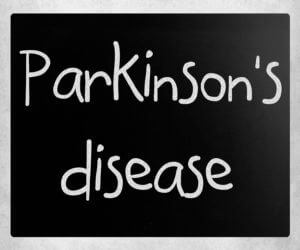Coping with Parkinson’s Psychosis
Although some people think that Parkinson’s disease (PD) is a condition that has only physical symptoms, it can also affect a person’s brain, causing cognitive difficulties, including Parkinson’s psychosis. If your aging relative has PD with psychosis, knowing what that means and how to cope with it can help you to better manage their care.

Senior Care in Mobile AL: Parkinson’s Psychosis
What is Parkinson’s Psychosis?
Parkinson’s psychosis is a symptom of PD that causes hallucinations and delusions, though it may cause just one or the other. Hallucinations occur when a person believes they sense something that isn’t there. A hallucination can involve any of the senses. Delusions occur when the person has an altered sense of reality that causes them to believe things that aren’t true. For example, they may accuse family members and caregivers of stealing from them.
Approximately half of all people with PD experience psychosis. Experts aren’t exactly sure why psychosis occurs, but believe it is caused by one of two things:
Medicine Side Effect: It’s possible that psychosis is a side effect of medications used to increase the amount of dopamine in the brain. The increased dopamine may cause changes in the brain, including both physical and chemical changes. These changes may trigger the hallucinations and delusions.
Natural Outcome: Another theory concerning the cause of PD psychosis is that it is a natural progression of the disease that would happen even if a person did not use dopamine therapy drugs.
Tips for Coping
Dealing with PD psychosis is difficult, especially if you’re uncertain what to do during episodes. Regardless of whether your family member experiences hallucinations or delusions, it’s important to let the doctor know that the person is having non-motor symptoms. It’s also important to remain calm when the senior is delusional or hallucinating.
If the senior is hallucinating, try these tips:
-Increase the lighting in the house. This can reduce shadows and lessen the chance of the person seeing things that aren’t there.
-Talk to the person about what is going on, but don’t argue with them.
-Try to distract them with a favorite activity or a snack.
-Be sure that all people who spend a lot of time with the senior are aware of how to handle hallucinations.
If the senior is delusional, these tips may help:
-Keep items that might be dangerous, such as knives or guns, out of reach since a person who is delusional may mistake a caregiver for an intruder.
-Make sure the house is set up to reduce the chance of the person tripping during episodes of delusion.
-Don’t argue with the person.
-Inform family members and caregivers about delusions and how they can handle them.
If your aging family member suffers from PD psychosis, home care can assist them to cope with episodes. A home care provider can ensure the person remains safe while they are hallucinating or delusional. Home care providers can also inform family caregivers of new symptoms so that they can talk to the doctor.
If you or someone you know needs Senior Care in Mobile AL, please contact the friendly caregivers at Hughes Home Care. We provide quality and affordable care for your elderly loved ones in our community. Call Us Today 251-517-9901. Serving Mobile & Baldwin County.
Sources
http://www.parkinson.org
- Risk Factors that Increase the Likelihood of Heart Failure - April 11, 2025
- Is it Possible for Seniors to Eat 30 Plants a Week? - March 25, 2025
- Healthy Aging: Why Remaining Active Matters - March 7, 2025
